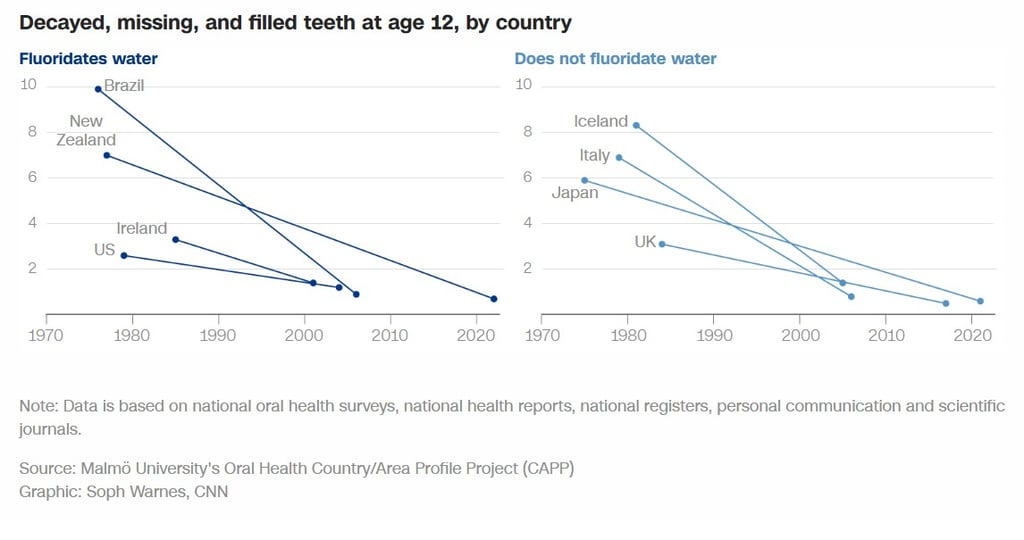Is the Public Health Experiment of Fluoride in Water Good For Us?
The public fluoridation of drinking water appears to have as many negative effects as benefits.
NEWS
11/23/20242 min read


If nothing else, the re-election of Donald J Trump signaled the American people have had enough of the excuses for an unaffordable economy, but also of chronic health issues. President-elect Trump chose RFK Jr. as the Health and Human Services secretary, pledging to let him "go wild on health."
One of the primary problems RKF Jr. promised to resolve is dental health related to the use of fluoride in public drinking water.
“Fluoride is an industrial waste associated with arthritis, bone fractures, bone cancer, IQ loss, neurodevelopmental disorders, and thyroid disease.”
Fluoride is a naturally occurring mineral found in plants, water and food. At optimal levels, scientist believe it promotes good dental health. And so, like any God-designed element of nature, humans decided to embark on a mass-scale experiment to fluoridate public drinking water starting back in 1945.
Fluoride is good for you: (CNN) The US Centers for Disease Control and Prevention (CDC) named fluoridation of drinking water one of the 10 greatest health interventions in America in the 20th century alongside vaccination, family planning and safer workplaces.
Fluoride is bad for you: (CNN) WHO states that long-term exposure to fluoride levels above 1.5 milligrams per liter (mg/L) in drinking water can lead to health problems. In fact, rather than dental health, high levels of fluoride can lead to tooth enamel and skeletal fluorosis, a serious condition which causes bone weakness and stiffness and pain in joints. And as RFK Jr. warned, fluoride expose was associated with lower IQ in children as well as other neurobehavioral problems.
What's the truth? The evidence is mixed. Some studies show fluoride improves dental health in children, others do not. Maybe the final conclusion can be drawn from a broader global trend since the 1970s revealing a decline in tooth decay and cavities, likely due to the widespread use of toothpaste and mouthwash rather than fluoridated water. The trend of better dental health might simply be more people generally taking better care of their teeth.
My take: When a study involves massive populations over many years, with countless confounding variables, drawing confident conclusions is nearly impossible. That’s the key takeaway from the decades-long experiment of supplementing water with fluoride. Though the good intentions of better dental health are admirable, mass-scale public health interventions often have unintended consequences. It's time to discover if the negative consequences outweigh the benefits.
International trends in oral health show little difference between countries that fluoridate their water and those that don't

Faith Check News
Curating daily news stories for Christian readers.
CONNECT OTHERS
© 2025. All rights reserved.


